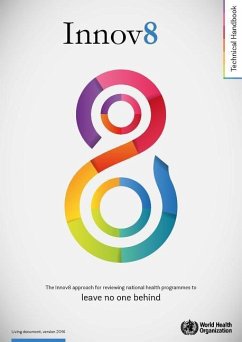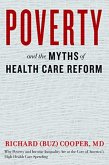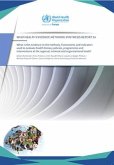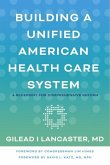As called for by the Sustainable Development Goals, ministries of health and others involved in the delivery and design of health programs in all countries are grappling with the question of how to ensure that no one is left behind. Many are working to reduce inequities in health service access and health status, including reforms towards universal health coverage (UHC), enhanced intersectoral action, stronger social participation, gender-responsive and rights-based programming, and health inequality monitoring. This handbook supports these efforts and is a resource as part of the Innov8 approach to reviewing national health programs to leave no one behind. Innov8 entails an 8-step review process undertaken by a multidisciplinary national review team. It responds to the practical question of how to make concrete, meaningful and evidence-based programmatic action to tackle inequities and other shortfalls in the realization of human rights and gender equality and to address the wider social determinants of health. The Innov8 Technical Handbook is a user-friendly resource that includes background readings, country examples, and analytical activities to support a programmatic review process.
Bitte wählen Sie Ihr Anliegen aus.
Rechnungen
Retourenschein anfordern
Bestellstatus
Storno







